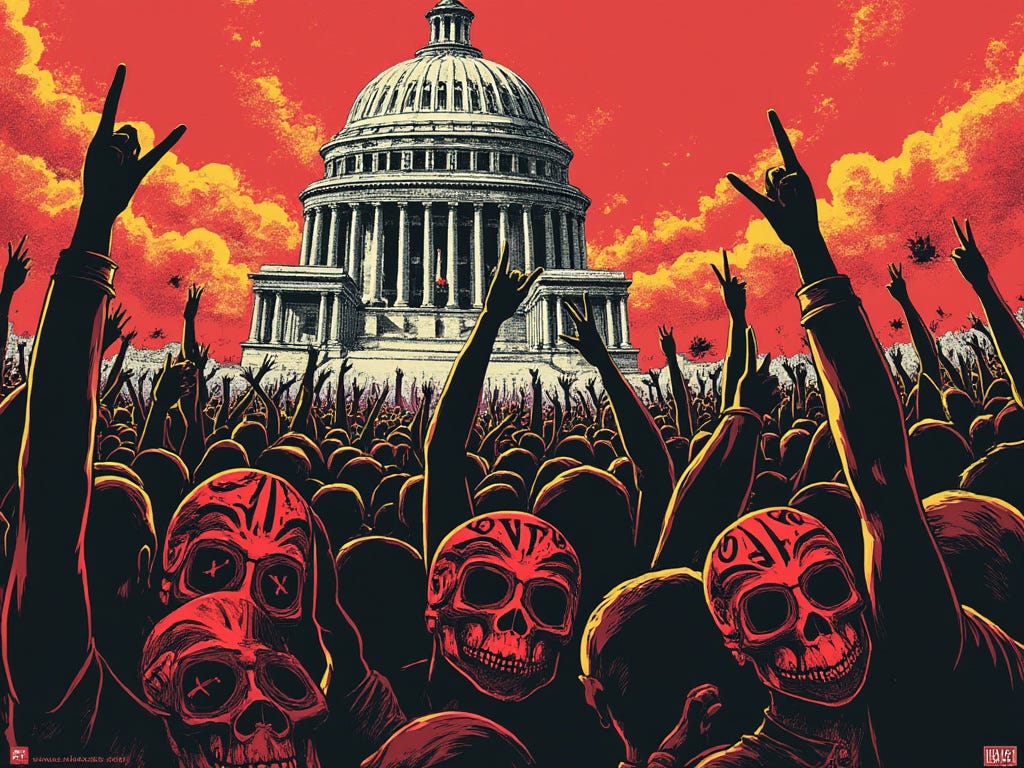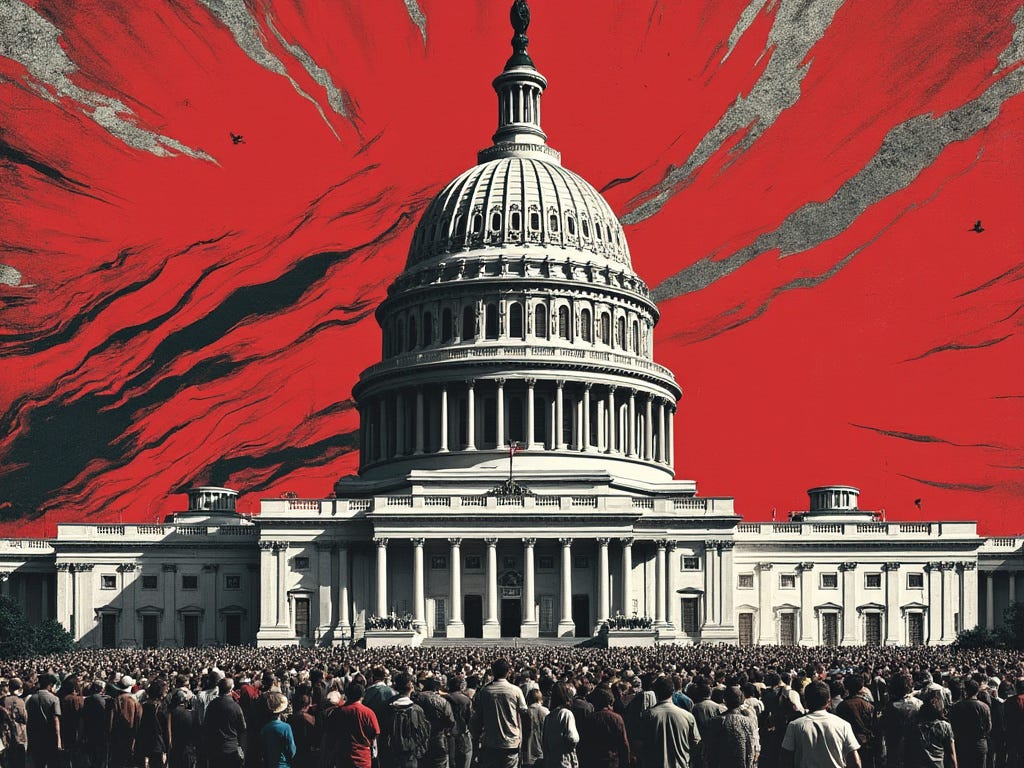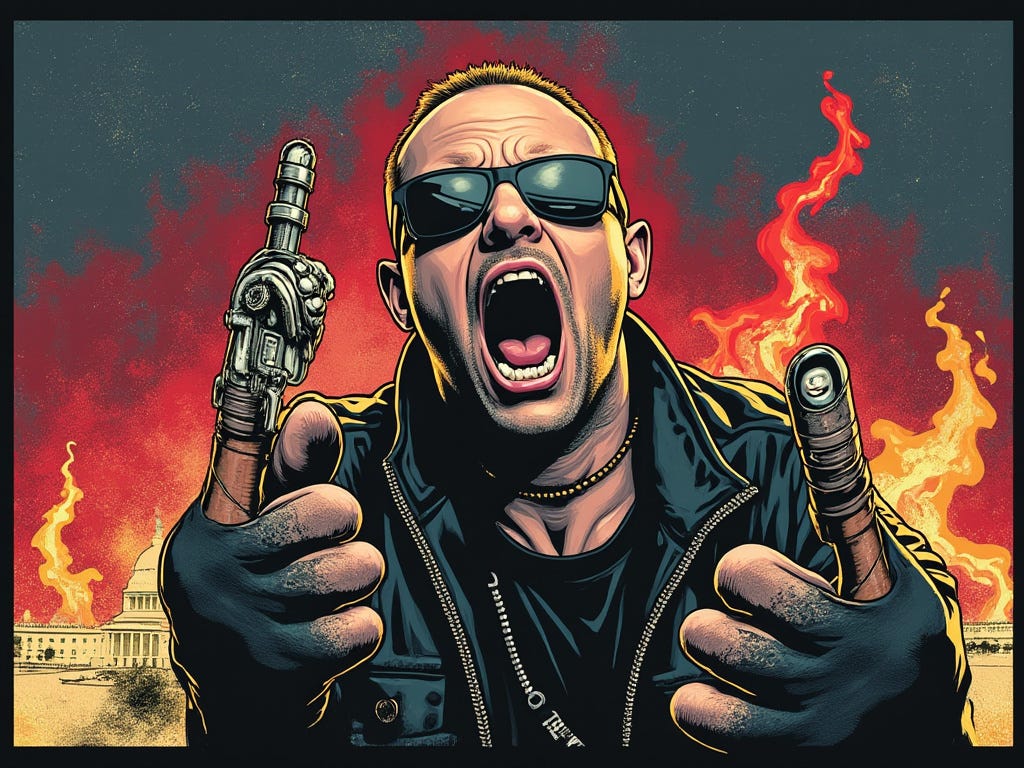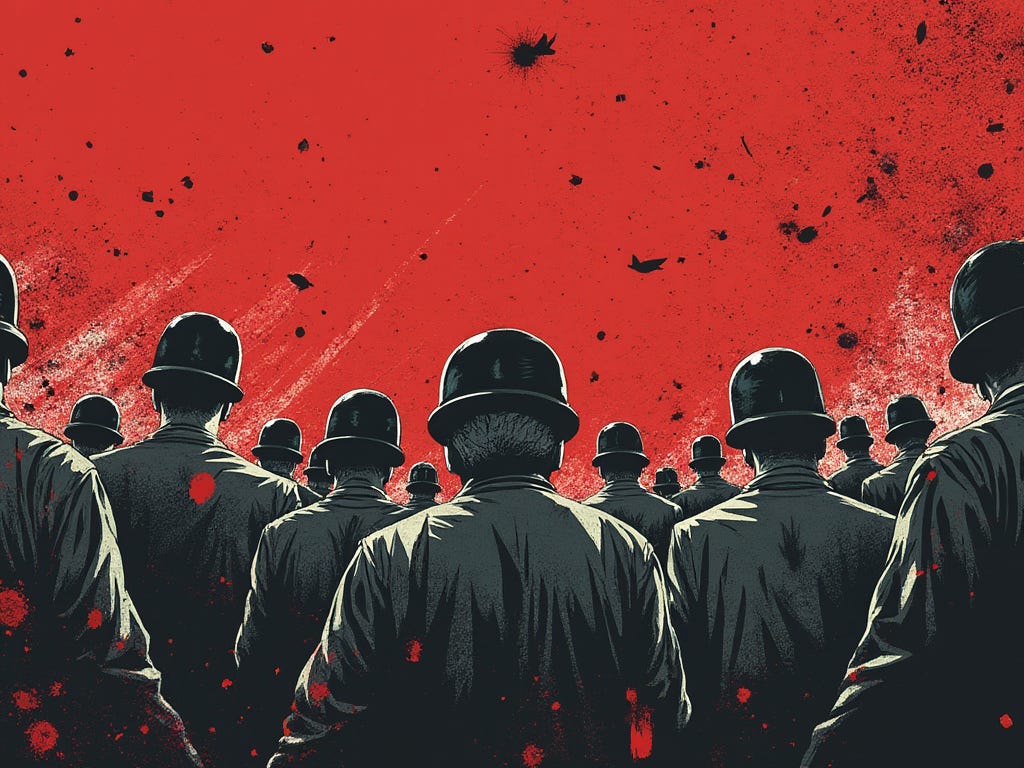By David Bell: The Brownstone Institute
Words can harm. The childhood saying “Sticks and stones may break my bones but words will never hurt me” is obviously untrue. Words bring ruin and despair, drive people to suicide, and foment massacres and war. They are used to justify the enslavement of nations, and the genocide of entire ethnic groups. This is exactly why we must all, always, be free to speak them.
In a perfect world, lies and deceit would not exist. We would have no reason to fear the spoken word. In the world in which we live, lies and deceit exist in all of us. They drive us to speak evil, and the more we can isolate ourselves from the harm our words do, the more evil we are able to speak. A holocaust could happen because some people built a structure within which only they could speak as they wished, whilst preventing others from talking back. Tyranny and pogroms thrive on one-way conversations.
The safe spaces of censorship currently enable countries to bomb children while convincing themselves they are making things better. They recently allowed our international health agencies to impoverish tens of millions and drive millions of young girls into the brutality of child marriage, whilst living a lie of protecting them. This has occurred throughout history. Fools and psychopaths think that now we can censor better and avoid the disaster it always brings, just as previous fools and psychopaths did. To fulfill their desires, they must always convince themselves of this.
Speech, Power, and Ugliness
Bad things happen both as a result of free speech and due to a lack of it. Particularly around unpleasant subjects that society would rather hide. People are falsely accused of child molestation, and we know the impact that such accusations can have. However, the growing child exploitation and abuse industry, driven by the internet, is also protected by fear of speaking out. Very powerful people benefit because of taboos that restrict such accusations.
This unpleasant example is important, as it exemplifies the problem around controlling speech. The taboo is only a tool to protect the truly powerful – those who decide, directly or indirectly, what may be said. They can use it to suppress knowledge of their own deeds or to unleash the rage of the mob against those who oppose them. The prohibition of censorship is the only bulwark against the concentration of such power.
We have ways for dealing with the harms that free speech can cause. Where it causes clear personal harm with malicious intent, there are legal sanctions that allow these to be exposed and openly discussed. Where it calls for murder or physical harm, there are laws that recognize it as part of any subsequent crime. But the public is remarkably good at tempering their speech and recognizing what is right and what is wrong when they can see all sides. The major pogroms and mass murders of the past century were nearly all under the guidance of governments who controlled narratives, not undirected mobs. History is clear where the greater risk lies.
Free Speech Is Not about Truth, But Putting Limits on Power
Fear of a lack of truth drives many people’s calls for controlling speech (e.g. blocking misinformation). This is where the current debate becomes confused. Freedom of speech is not about truth. It has little to do with it. It is about equality. It is about putting limits on the power of a few over the many.
Censorship, by contrast, is the tool of those who consider their own thoughts and words superior to those of others. In the early 20th century this was called fascism. By any other name, it is the same thing. The Western governments pushing new information control laws are uncomfortable with that term due to its associations with monochrome footage of jackboots and concentration camps. It is what their people thought they had fought against. But the underlying driving principles they are espousing are the same.
While fascist regimes rely on lies for their survival, and so must continually ramp up censorship once they start it, the absence of censorship also enables lies to be disseminated. These can be harmful but are controllable as long as there is freedom to expose the lie. The Nazis gained popularity through freedom of expression but needed violence and censorship to actually take and hold overall power. The United States Founding Fathers saw this when they agreed to the First Amendment. Such freedom of expression absolutely allows mis- and dis-information. This is the price paid, the insurance cost, to ensure that the really bad people cannot take power, or those in power cannot then become really bad and stay there. Germany did not have such insurance.
Western governments are currently pushing censorship to ‘keep their populations safe,’ itself an inherently elitist claim that implies that the population are less able to discern truth and untruth. The Australian government publicly and incoherently dissociates ‘free speech’ from information that the government considers to be “misleading.” Once this is accepted, free speech means nothing more than government-sanctioned messaging.
Such limits can only serve to amplify the voice of the powerful while disempowering the weak – those who don’t control the organs of censorship. This should be self-evident to those who have suffered under overtly authoritarian regimes, as it was for 18th-century Americans who suffered under a British military dictatorship. However, in populations like Australia, where only a small minority have experienced open repression, a self-defeating naiveté persists.
The silencing of the people is simply the transition from the people owning a government to being subject to one. It protects those at the center and exposes everyone else. Once in place, history demonstrates that this is very difficult to peacefully undo.
The Problem of Hate
‘Hate speech’ is the other big excuse for censorship. Opposition to “hate speech” provides an appearance of virtue, It clearly defines those who speak such words as inferior. It has also served an important purpose that it was probably intended for (it’s a fairly new term). As a relatively new term, it has served the important purpose of allowing many who were claiming to abide by traditional left-wing credentials on human rights and individual autonomy to move to the fascist ideology of their corporate mentors, whilst still pretending to be advocating a humanitarian cause.
Hate is difficult to define, or rather it is defined in many different ways. Directed to a person, it classically means wishing someone else harm because of who they intrinsically are, rather than what they have done. You could love someone but believe that justice should be served for a crime, and that would not be hate. You could be at war with someone and not hate them – that is what is meant by “love your enemies.” You may take on the hard task of a soldier without denying the humanity and equality of those you are protecting your country against. You may consider an adult performing a drag show in front of young children inappropriate and repulsive, and fight to protect the children, but consider the perpetrator your equal in God’s eyes. Hating a person is something very different, and in a realm that human law cannot clearly define or encompass.
So, we can, and should, hate what others do when they harm innocent people, and we should recognize such tendencies in ourselves. That does not mean hating the other, or oneself. ‘Hate speech’ that involves stating a hatred or dislike is itself neither good nor bad. It depends on the context. It is simply stating a feeling or emotion. I hate the way some men in the town I grew up in bashed their wives, and I hate that child marriage and abuse are acceptable collateral damage to large public health agencies, I think I should express this. In an ideal world, we would all be able to speak freely of our hatred of wrong.
However, even hate aimed at people is also not necessarily a reason for us to condemn them. I have met someone whose entire village was massacred by another defined group of people, and my own grandmother’s son was deliberately starved to death by agents of a foreign country. Who am I to condemn them for their unwillingness to deal with such people? I think they are wrong, but recognize I would likely have the same reaction. They should be allowed to speak of their feelings freely.
We, as mature humans, can understand the contexts of others’ feelings, hear their words, and engage in conversation. Hate hidden within us needs exposure to the light of open discussion to be healed. To suppress freedom of expression, as many governments and our corrosive international institutions are currently doing, is to deny and suppress this conversation. This grows exclusion, rather than inclusion and acceptance.
Advocating for Free Speech Enables Virtue But Does Not Require It
The Founding Fathers of the United States who enshrined free speech in their constitution were not exceptionally good, moral human beings. Many of those involved openly abused their positions of power by keeping slaves, while others condoned the practice. They were deeply flawed people who were still able to recognize ideals greater than themselves.
Most people, though perhaps not all, share ideals and understandings of fundamental rights and wrongs. However, we are also driven by greed, self-preservation, and a desire to be part of a group that we will promote to the detriment of others. We cannot control these drives in others and are poor at controlling them in ourselves. The ability to speak freely enables us to call out others’ flaws and to acknowledge those pointed out in ourselves. A king with a court of yes-men is in grave danger of harming his people and himself. A rich and powerful philanthropist who surrounds himself with sycophants falls into the same trap. The unpleasant necessity of having our own wrongs exposed is lost when we suppress speech through fear or law, and we prevent our own redemption.
So, freedom of speech is about allowing truth to expose the falsehood and corruption in ourselves and in others. It is therefore uncomfortable to ourselves and to those in power. It upsets the harmonious and cohesive running of society, as the government of China might say. This is why censorship is so intrinsically attractive to all of us, and banning it is difficult. The American Founding Fathers, for all their corruption, were inspired to a rare degree.
The alternative is the growing order and harmony of a society in which almost everyone does what they are told, ceases to dream or hope, and no longer prioritizes the radical pursuit of happiness. It is the comfort of battery hens safe in their middle-suburban cages, serving those who have adopted a right to control them, clucking at the miss-fits pulled out for slaughter. That is simply feudalism and oppression.
The alternative, for which freedom of expression is absolutely necessary, is human flowering. More than recent generations, we all now face a choice of whether to stand for this or condemn future generations to the featureless peasantry our forebears fought so long against.
Published under a Creative Commons Attribution 4.0 International License
For reprints, please set the canonical link back to the original Brownstone Institute Article and Author.
Author
David Bell, Senior Scholar at Brownstone Institute, is a public health physician and biotech consultant in global health. David is a former medical officer and scientist at the World Health Organization (WHO), Programme Head for malaria and febrile diseases at the Foundation for Innovative New Diagnostics (FIND) in Geneva, Switzerland, and Director of Global Health Technologies at Intellectual Ventures Global Good Fund in Bellevue, WA, USA.







Quit the warp on the subject here. Let us define and explore evil as a concept in my podcast here:
https://soberchristiangentlemanpodcast.substack.com/p/s1-ep-2-scgp-rebroadcast